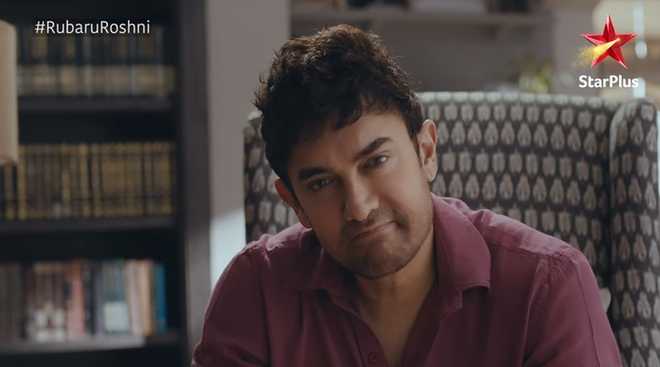
Aradhika Sharma
In the introduction to his film Rubaru Roshni that was released in six languages on television on Republic Day, Aamir Khan says he has worked in and produced several films in his career spanning 30 years, but this film is his most significant work. He claims that when he saw the film for the first time, it had a deep impact on him; Svati Chakravarty, the director and sutradhar, says the same thing as she explores the link between peace and forgiveness.
The film, as it progresses, is as much a catharsis for viewers, who have had their own experiences of anger and unforgiveness as the people in the three stories that Chakravarty brings before us. Set in recent history (1984 to 2008), the format of Rubaru Roshni follows the format of telling real-life stories through interviews with people. The first story Orphan and the Convict is based on the assassination of politician Lalit Maken by Kukki; the second The Farmer and the Nun is about the murder of Sister Rani Maria Vattalil by Samundar, a farmer, and the third The Terror and the Mom is the story of Kia Scherr, who lost her husband, Alan, and 13-year-old daughter, Naomi, to the 26/11 terror attacks in Mumbai. The film charts the stories of three individuals: Avantika (Lalit Makan’s daughter), Sister Selmi, (sister of the slain Rani Maria) and Kia Scherr (co-founder of One Life Alliance) who after suffering the pain and bitterness of violent loss, eventually find their healing after they choose to forgive the very people who did them grievous injury. It was tough, and it took time, but for them forgiveness was the only way forward.
The film is powerful, yet without script (except for by Khan). Svati herself conducts the interviews and does it without intrusion and with utmost tenderness and delicacy. In the process, she captures angles and nuances that rend the heart. Yet, there’s no posturing in the film, which moves forward with simplicity and beauty despite the unbearable violence that is its basis. The ‘culprits’ are given equal opportunity to tell their side of the story — to offer explanations for their environment, motivation and actions and their regret and repentance over what they did.
One even feels sorry for captured and injured terrorist Ajmal Kasab when he tells a policeman,“Yeh gurbat bahut badi cheez hai, sahib ji. Jab ghar mein kuch khane ko nahin hota hai, jab kuch pehenne ko nahin hota hai, toh banda kya karga?”
In the end, Samundar asks, “What right do we have to forgive ourselves? First to sin and then forgive yourself — God has given no one that right.”
A moist-eyed Kukki, ruing his lost years in exile, says “One thing I’ve learnt in my years is that violence is always a short cut. And most of the time, it boomerangs. It cuts you more than you want the other person to be cut. To be unforgiving is like taking poison and hoping your enemy dies. But we are the ones who have taken the poison”. Simple, but never simplistic, Rubaru Roshni consists of stories of forgiveness that have the power to transform. The film offers valuable lessons to individuals that are rift with political and religious polarity and a nation that is becoming rife with separatism and intolerance.
As a viewer, I can say that it is one of the most impactful films I have seen in my adult life: a life and attitude-changing experience that had me ruminating on how violence can harvest bitter fruits. But if watered with the healing droplets of forgiveness and mercy, the tide of hatred that is germane to violence can be turned and even concluded.



























